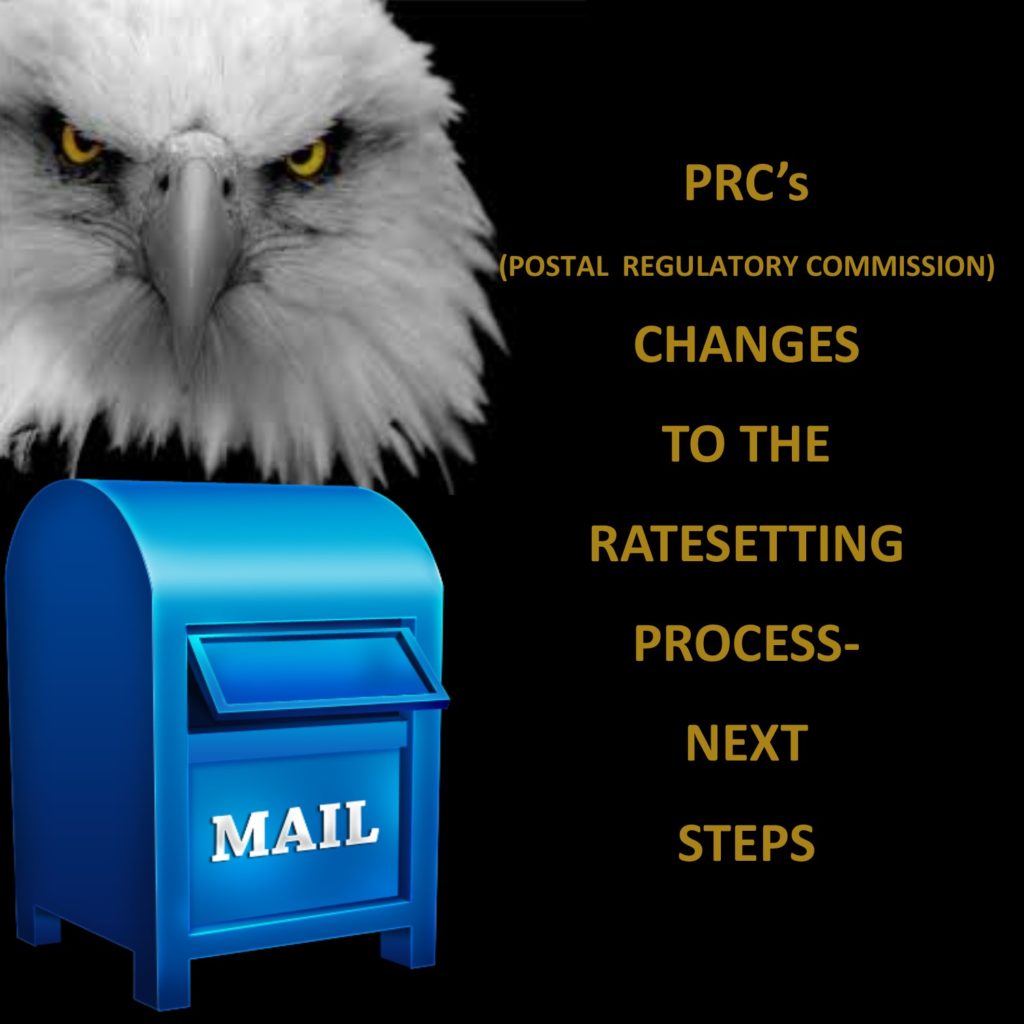 As you have already heard, the Postal Regulatory Commission (PRC) has issued a proposed change to the rate setting process that would authorize a series of over -Consumer Price Index (CPI) increases that could sharply increase postal rates over the next five years. (For details see our blog; The PRC is Threatening Your Livelihood)
As you have already heard, the Postal Regulatory Commission (PRC) has issued a proposed change to the rate setting process that would authorize a series of over -Consumer Price Index (CPI) increases that could sharply increase postal rates over the next five years. (For details see our blog; The PRC is Threatening Your Livelihood)
March 1, 2018 marked the deadline to receive comments about the proposed changes, and the PRC got plenty. The comments received had a consistent theme from industry associations, individual mailing companies and direct mail organizations.
The American Mail Alliance represents associations and individual signers that have come together for the sole and limited purpose of showing unanimity in asking the PRC to reconsider its proposed solution. The AMA is by far, the largest ad hoc group submitting comments. They criticized the prefunding burden and noted that the PRC was placing too much focus on the financial health of the USPS as impacted by the Postal Accountability and Enhancement Act (PAEA), stating that most stakeholders in the industry, predictability, rate stability, and transparency have been achieved. In turn, the group argued that the commission over zealously sought ways to pay the accumulated debts caused by the unnecessary prefunding requirement.
Another rally against the proposed plan came from three groups commenting jointly; (the National Postal Policy Council, Major Mailers Association, and the National Association of Presort Mailers). They not only argued against the higher prices but questioned whether the PRC has the authority to advance changes to the CPI-based rate setting system.
Other powerhouse organizations that “chimed in” questioning the PRC’s authority to move forward included the Alliance of Nonprofit Mailers, the American Catalog Mailers Association, the Association for Postal Commerce (PostComm), Idealliance, and the Association of Magazine Media.
So, what’s next? March 1st marked the first phase of comments; reply comments in which commenters critique each other, are due by the end of the month.
After that, the PRC faces the task of digesting the input it has received and developing responses to comments. They can produce a revised proposed rule (presumable acknowledging the industry’s concerns); or they can issue a final rule presenting the changes it plans to implement.
A second proposed rule would repeat the comment and, perhaps, reply comment periods, while a final rule would set a timeline on which it would be implemented.
The commission’s deliberations could reasonably take at least sixty days, meaning a revised proposal or a final rule shouldn’t be expected until late May or early June at the earliest, with implementation (under a final rule) sometime later this year. If a second proposed rule were issued, that would add another sixty to ninety days, at least.
Whether a presumed late-2018 rate filing by the USPS would be impacted is unknown at this time but, regardless, nothing will change about how USPS rates are set until the PRC’s rule making is concluded.
Of course, it’s widely anticipated that a law suit in federal court against the PRC’s final rule – no matter what it is – particularly given the opinion of some commenters that the commission lacks the legal authority to do what it’s proposing. If there is litigation, the final outcome is anybody’s guess! We will keep you posted as this important issue unfolds.
